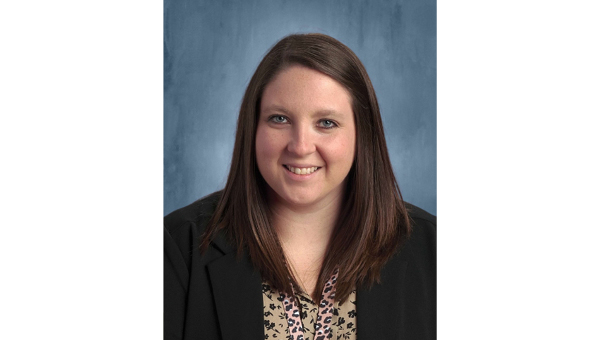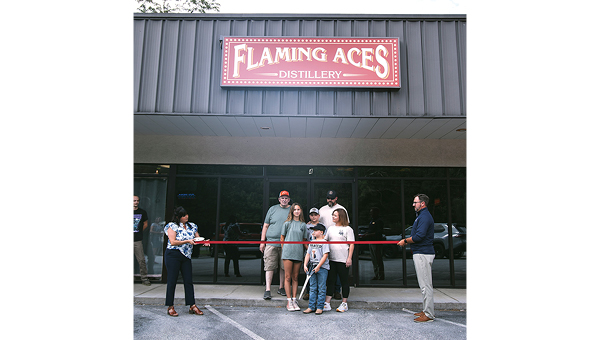Reaping and sowing: The law of nature
Published 3:00 pm Friday, September 15, 2017
By PASTOR Brandon Young
Sowing and reaping are agricultural terms. They are laws of nature. Farmers and gardeners throughout history have depended on this principle to be true in the natural realm, and God’s word says that truth in agriculture is true in life as well. What a person sows in life, he/she will eventually reap — not because God does something extraordinary to make it happen, but because it is a principle He has established. So, don’t be deceived into thinking you can sow bad seed and in turn reap a wonderful harvest. Or, as the saying goes, “sow wild oats” all week long and on Sunday, pray for crop failure. It cannot work that way! We will receive consequences for the decisions we have made. Sometimes I think we get focused on trying to get a different harvest without recognizing we need to sow differently. We sow what we’ve been sowing but somehow, we hope we’ll reap a different harvest.
Galatians 6:7 states, “Be not deceived; God is not mocked: for whatsoever a man soweth, that shall he also reap.” If we don’t like our harvest, then we must examine our sowing. We must use discretion before we place a seed in the ground. If we sow hatred, confusion, division, doubt, etc. we will in turn reap the same. Upon conversion, many think they cannot sow bad seed, but, the bad seeds of the flesh are still with us. We are given new seeds of the Holy Ghost that produce love, joy, peace, long suffering, gentleness, goodness, faith, meekness, and temperance, but we must decide to sow those rather than the seeds of the flesh. Job 4:8 states, “Even as I have seen, they that plow iniquity, and sow wickedness, reap the same.”
I recently read a story about a man who told his son, “Don’t go into that watermelon patch. The melons aren’t ripe yet.” Then the father drove into town. The boy went out to the watermelon patch and found one melon that he knew was ripe. He pulled it, broke it over some rocks and ate it. He knew he had done wrong. He knew he had disobeyed his father, but he hadn’t been caught. He truly thought he had gotten away with it.
Several weeks passed. As the father was driving a cow up from the pasture, he saw a strange thing on the other side of the fence. He saw little watermelon sprouts by some rocks. He dug by the new plants and saw the old rinds with seeds sprouting. He knew what had happened. The boy was caught. We must be sure that our sins will find us out. They will spring up and bud in plain sight. As we look throughout God’s word we will find individuals that sowed evil seeds and reaped an evil and difficult harvest. Take Samson for example. He revealed the source of his strength to Delilah all because he lusted after her. He lost all his supernatural strength after she cut his hair, and then had his eyeballs spooned out. The same eyes he used for lusting and failing God were removed in his harvest. Cain lived life as a marked man after killing his brother Able and stated that his punishment was more than he could bear. Cain reaped a painful harvest because he sowed seeds of jealousy and murder. Haman built gallows for Mordecai, the man of God, but in the end, he hung on those same gallows. A man that digs a pit for another will fall there in. It is a natural law. These are just three examples, but truly the Bible is full of other men and women who reaped a harvest that could have been different, if better seed had been sown.
Thankfully, there are times when the mercy and grace of God walks in and prevents us from experiencing the consequences of our actions, but at other times, God allows us to experience the full harvest of our deeds. It would pay each of us to use discretion when we speak and act. We will give an account for every idle word that leaves our mouth. Every day from the time we get up until the time we go back to bed we are sowing seed. We must evaluate the seed carefully, and make sure we know from what source we are receiving the seed. If it is bad seed, we must discard it immediately. God forbid we place it in the ground of life to reap a tough harvest. The good seed we should plant and water so it will spring up and be a blessing to us and those around us. We must realize that our harvest doesn’t just affect us, but everyone around us. We can leave an impact on the lives of others if we sow the right seed.
On July 20, 1969, Neil Armstrong was the first man to set foot on the moon. As he stepped onto the surface he uttered his now famous line, “that’s one small step for man, one giant leap for mankind.” That historic event happened almost 48 years ago, but those first footsteps are still there undisturbed. In fact, NASA estimates that those first footprints will be there for a million years because there is no wind or water or animals to disturb them. As we walk through life, we leave imprints on others’ lives that not only can last a lifetime, but can last for eternity. If we keep in step with the Spirit and we sow the Spirit, the Spirit will use us to leave a footprint in people’s lives that can last for eternity.
(The Solution Column is provided by Pastor Brandon Young of Harmony Free Will Baptist Church, Hampton, and his associate, Hunter Greene.)





